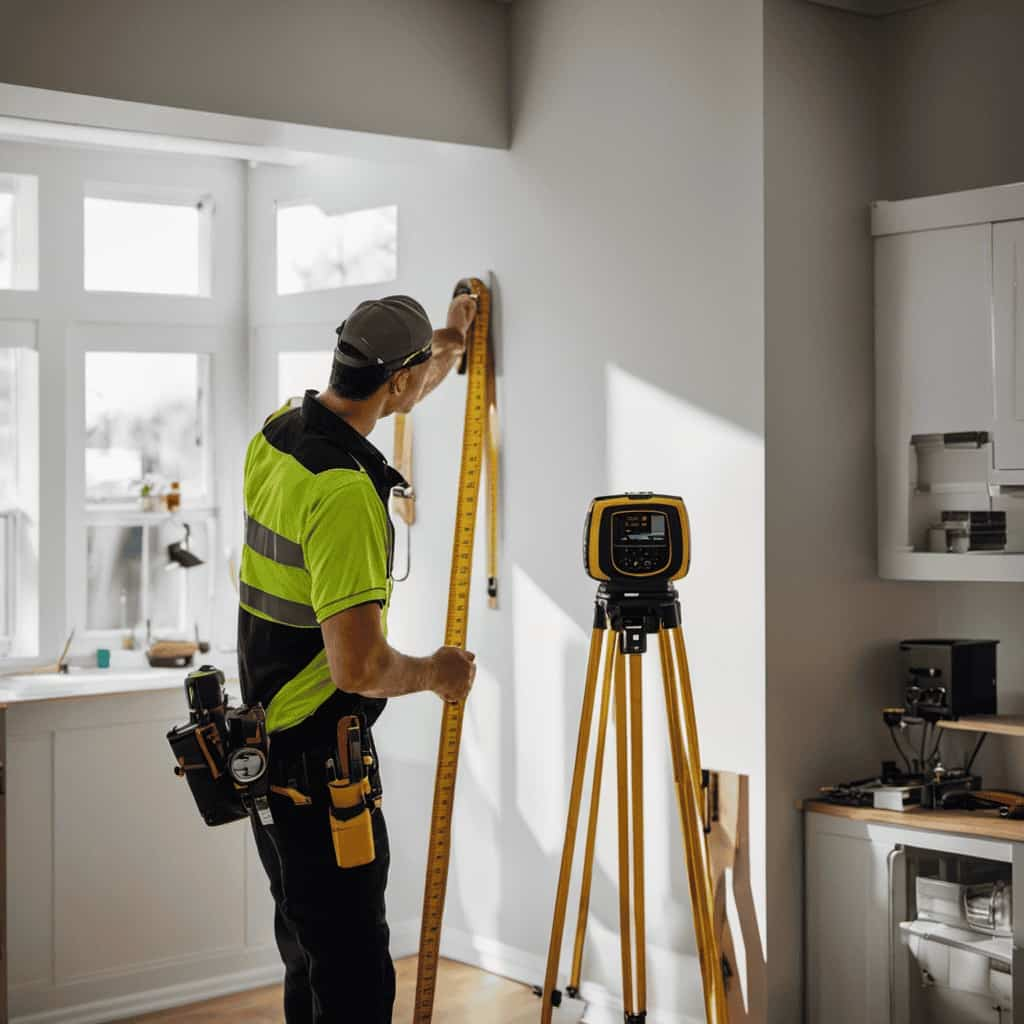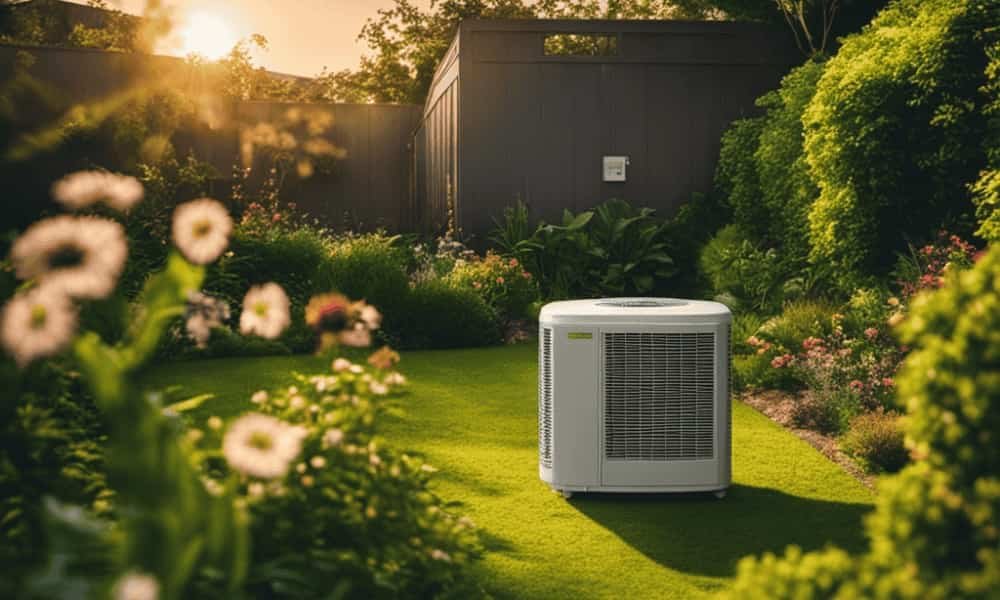Welcome to our detailed guide on heat pumps, where we will walk you through the process of upgrading your home heating system.
Imagine a cozy, energy-efficient oasis where comfort meets innovation. With our expert knowledge and technical expertise, we’ll show you how heat pumps can revolutionize your home’s heating system.
From understanding how they work to choosing the perfect size, installation process, and maintenance tips, we’ve got you covered.
Get ready to experience the future of home heating with our comprehensive guide to heat pumps.

Key Takeaways
- Heat pumps provide increased energy efficiency and lower utility bills.
- Heat pumps utilize renewable energy sources and reduce environmental impact.
- Geothermal heat pumps are highly efficient and can significantly reduce energy consumption.
- Proper sizing, installation, and maintenance of heat pumps are crucial for optimal performance and energy savings.
Benefits of Upgrading to a Heat Pump for Home Heating
Upgrading to a heat pump for home heating offers us numerous benefits. One of these benefits is increased energy efficiency and lower utility bills. Heat pumps are highly efficient systems that transfer heat from one place to another, rather than generating heat through combustion. This process results in significant energy savings. In fact, heat pumps can provide up to 4 times more heat energy than the electrical energy they consume.
Another advantage of heat pumps is their utilization of renewable energy sources. They can draw heat from the ambient air or ground, which reduces their environmental impact compared to traditional heating systems. Heat pumps produce fewer greenhouse gas emissions and help to reduce our reliance on fossil fuels.
With advanced technology and innovative features, heat pumps are the future of home heating. They not only provide comfort but also contribute to sustainability.
Understanding How Heat Pumps Work
To truly understand how heat pumps work, we must first grasp the concept of heat transfer and the role it plays in heating our homes. Heat pump technology utilizes the principle of extracting heat from one source and transferring it to another. Here’s a breakdown of how heat pumps work:

-
Heat extraction: A heat pump extracts heat from the air, ground, or water using a refrigerant that absorbs heat energy.
-
Compressor action: The refrigerant is compressed, increasing its temperature and pressure.
-
Heat distribution: The hot refrigerant passes through a coil, where it releases heat to warm the air or water in your home.
-
Energy efficiency: Heat pumps are highly efficient, providing significant energy savings compared to traditional heating systems.

Types of Heat Pumps for Home Heating
There are several options available when it comes to selecting the right type of heat pump for home heating. Two popular options that can provide efficient and innovative heating solutions are geothermal heat pumps and air source heat pumps.
Geothermal heat pumps utilize the constant temperature of the earth to provide heating and cooling for homes. They extract heat from the ground during the winter and transfer it indoors, while in the summer, they remove heat from the home and transfer it back into the ground. This process is highly efficient and can significantly reduce energy consumption.
On the other hand, air source heat pumps extract heat from the outdoor air and transfer it indoors. They work by compressing and expanding refrigerant to absorb and release heat. Air source heat pumps are easier to install and more affordable compared to geothermal heat pumps, making them a popular choice for homeowners.
Both geothermal heat pumps and air source heat pumps offer innovative and efficient heating solutions for homes. When choosing the right type of heat pump, it’s important to consider factors such as climate, energy efficiency, and installation costs.

Choosing the Right Size Heat Pump for Your Home
Choosing the correct size heat pump is crucial for optimal efficiency and comfort. Here are some sizing considerations to keep in mind:
-
Heat Load Calculation: Conducting a heat load calculation helps determine the heating and cooling needs of your home. Factors such as insulation, square footage, and climate are taken into account to determine the appropriate size.
-
Efficiency Ratings: Look for heat pumps with high Seasonal Energy Efficiency Ratio (SEER) and Heating Seasonal Performance Factor (HSPF) ratings. These ratings indicate the efficiency of the heat pump and can help you choose the right size with maximum energy savings.
-
Indoor and Outdoor Unit Matching: It’s essential to have the right match between the indoor and outdoor units. Mismatched units can lead to reduced efficiency and increased energy costs.

Considering these factors ensures that your heat pump is the right size for your home, maximizing heat pump efficiency and providing optimal comfort.
Installation Process and Considerations for Heat Pumps
During the installation process, we’ll carefully consider all the necessary factors and ensure that our heat pump is installed correctly for optimal performance.
The installation process for heat pumps involves several key steps to ensure that the system operates efficiently and effectively.
First, our team will assess the specific requirements of your home, taking into account factors such as size, layout, and insulation.

We’ll then determine the ideal location for the heat pump unit, considering factors like accessibility and noise.
Next, we’ll properly size the heat pump to ensure it meets the heating and cooling demands of your home.
Finally, we’ll install the heat pump according to industry best practices, ensuring proper ventilation, electrical connections, and refrigerant lines.
By following these installation considerations, we can maximize the energy efficiency of your heat pump system and provide you with superior home heating and cooling.

In the next section, we’ll explore how to further maximize energy efficiency with heat pumps.
Maximizing Energy Efficiency With Heat Pumps
To maximize energy efficiency with heat pumps, we should regularly clean and maintain the system. This ensures that the heat pump operates at its optimal performance, reducing energy consumption and ultimately saving on heat pump cost. Here are two key steps to take:
-
Clean or replace the air filters: Clogged or dirty filters restrict airflow, forcing the heat pump to work harder to maintain the desired temperature. By cleaning or replacing the filters every few months, you can improve energy efficiency.
-
Take advantage of heat pump rebates: Many utility companies and government agencies offer rebates for installing energy-efficient heat pumps. These rebates can significantly offset the initial heat pump cost, making it more affordable to upgrade to a more efficient system.

Maintenance and Troubleshooting Tips for Heat Pumps
To ensure proper functioning and longevity, we must regularly perform maintenance and address any troubleshooting issues that may arise with our heat pumps.
Heat pump maintenance is crucial in order to keep the system running efficiently and effectively. One important maintenance task is to regularly clean or replace the air filters. Clogged filters can restrict airflow and reduce the heat pump’s performance.
It’s also essential to inspect and clean the outdoor unit to remove any debris or dirt that may have accumulated. Additionally, checking the refrigerant levels and ensuring proper electrical connections are also important.
When it comes to troubleshooting, some common issues to look out for include strange noises, insufficient heating or cooling, and frequent cycling. If you encounter any of these problems, it’s advisable to contact a professional technician who can diagnose and fix the issue promptly.

Comparing Heat Pumps to Other Home Heating Solutions
When comparing heat pumps to other home heating solutions, we find that they offer superior efficiency and versatility. Heat pumps are known for their ability to transfer heat from one place to another, rather than generating heat directly. This means that they can provide both heating and cooling capabilities, making them a versatile choice for homeowners.
In terms of efficiency, heat pumps are highly efficient compared to traditional furnaces. They can achieve an efficiency rating of over 300%, which means that for every unit of electricity they consume, they can produce three units of heat. In contrast, traditional furnaces typically have an efficiency rating of around 90%.
Cost-wise, heat pumps can also be more economical in the long run. While they may have a higher upfront cost compared to furnaces, the energy savings they provide can offset this initial investment over time. Additionally, heat pumps require less maintenance and have a longer lifespan, further reducing overall costs.
Frequently Asked Questions
Can I Install a Heat Pump in My Home if I Live in a Cold Climate?
Yes, we can install a heat pump in our homes even in cold climates. The heat pump installation process is designed to efficiently extract heat from the air, providing us with the benefits of warmth and energy savings.

How Long Does a Heat Pump Typically Last Before Needing to Be Replaced?
Heat pumps typically last around 15-20 years before needing replacement. Signs of a failing heat pump include reduced heating or cooling capacity, strange noises, frequent breakdowns, and increased energy bills.
Are There Any Government Incentives or Rebates Available for Installing a Heat Pump?
Yes, there are government incentives and rebates available for installing a heat pump. These incentives aim to promote energy savings and encourage the adoption of innovative heating technologies.
Can a Heat Pump Also Provide Cooling for My Home During the Summer Months?
Yes, a heat pump can provide cooling for your home during the summer months. It utilizes heat pump efficiency to transfer heat from inside your home to the outside, providing the benefits of heat pump cooling.
What Is the Average Cost of Operating a Heat Pump Compared to Other Home Heating Solutions?
When comparing heat pump operating costs to traditional heating methods, factors such as energy efficiency and local utility rates must be considered. It’s important to understand the average cost of operating a heat pump to make an informed decision.

Conclusion
In conclusion, upgrading to a heat pump for home heating is a wise choice. With its efficient operation and ability to provide both heating and cooling, a heat pump offers numerous benefits.
By understanding how heat pumps work and selecting the right size for your home, you can maximize energy efficiency and enjoy superior comfort. Regular maintenance and troubleshooting will ensure its optimum performance.
Remember, ‘A stitch in time saves nine’ when it comes to choosing the right heating solution for your home.









